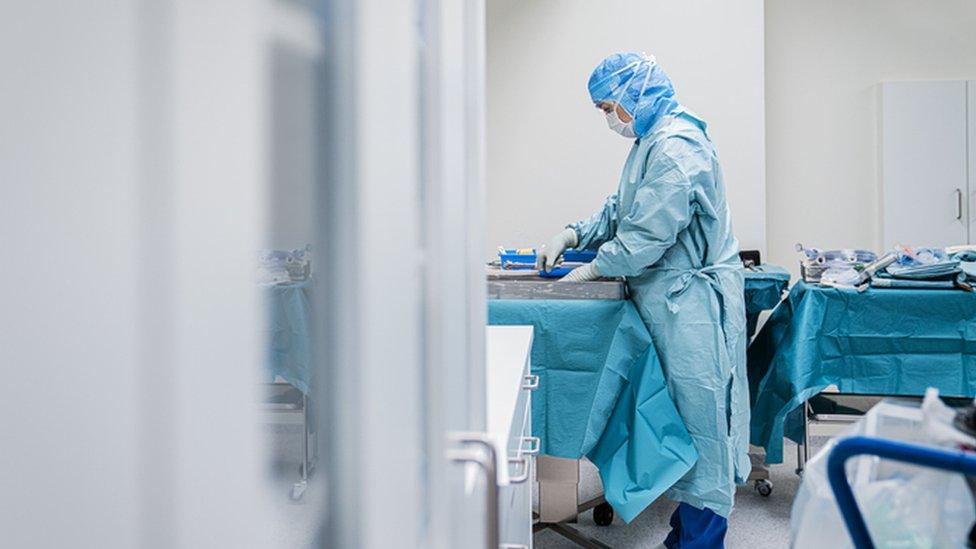Covid: Military back-up for pupil testing as heads urge delay to start of term
- Published
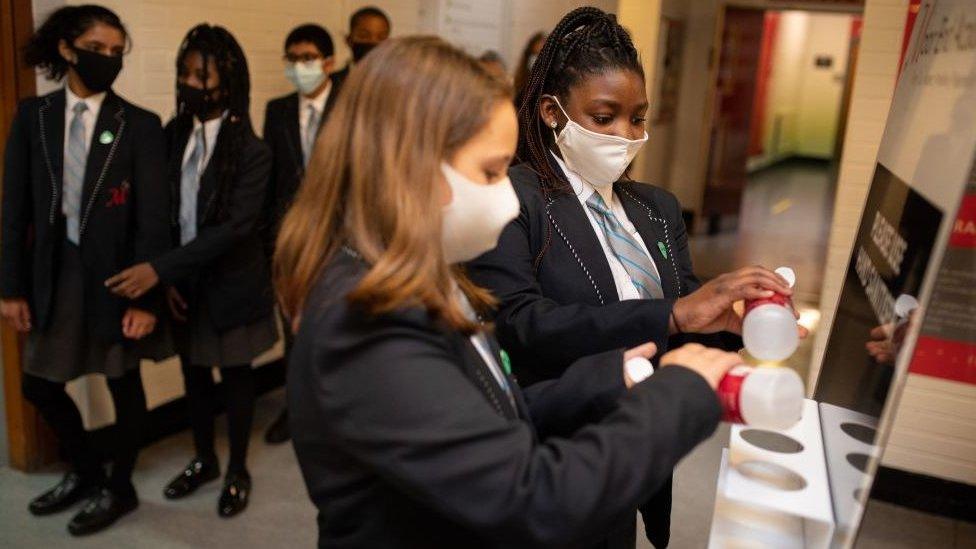
Members of the armed forces are to give remote support to secondary schools and colleges in England setting up mass Covid testing as the new term begins.
Military personnel will hold webinars and give phone support to school staff.
But head teachers say they need support on the ground and more time to make the plan workable. They are calling for a delay to the start of term.
The government wants pupils to go back in the first two weeks of January, but is keeping the situation under review.
Under the current plans, the majority of secondary school pupils in England are due to start term on 4 January studying remotely, to give head teachers time to implement a round of coronavirus testing for students and staff.
Primary school students will return as normal during the same week and will not be tested for Covid-19.
Those in exam years and vulnerable pupils will return in person first, with the rest expected to go back on 11 January.
But this entails 5.5 million secondary pupils being tested in schools in the space of a week.
Several media reports suggest ministers are considering delaying the start of term, with potentially only exam year pupils starting remotely in the first week of January.
In response to the reports, a spokesman for the Department for Education said: "We want all pupils to return in January as school is the best place for their development and mental health.
"But as the prime minister has said, it is right that we follow the path of the pandemic and keep our approach under constant review."
It added that funds had been made available for schools to hire staff from employment agencies to carry out the testing programme.
'Decision needed now'
Geoff Barton, general secretary of head teachers' union, the Association of School and College Leaders, said it seemed a "sensible and prudent approach" to delay the return to school, given the rising rates of Covid and the new strain of the virus.
He added: "What is vital is that schools are given clear guidance as soon as possible so they can make the necessary arrangements."
Senior Conservative MP, Sir Roger Gale, called for a decision to be made "now" on when pupils would return to school.
He told BBC Radio 4's PM programme: "When the situation changes, policy has to change decision. The decision to send primary and secondary school children back to school early in the new year was taken before the spread of the new breed of virus.
"We now know it's pernicious and we know that it affects young people as well as older people. It does seem to me, if we are going to get on top of the spread of the disease we have to do something about young people going back to school."
The Ministry of Defence said 1,500 personnel will form local response teams, providing support and phone advice to institutions on setting up and running Covid testing facilities.
Support would be offered "predominantly through webinars and individual meetings", it said, but teams would also be on standby to provide in-person support at short notice.

How are the UK nations returning to school?
England: Secondary school pupils in exam years will return at the start of term while others begin their learning online. Face-to-face learning is expected to resume for everyone by 11 January. Primary schools will return as normal
Scotland: Schools will start term on 11 January with learning taking place online until at least 18 January.
Wales: Term will start with online learning, but the majority of pupils are expected to resume face-to-face lessons by 11 January. A full return to the classroom is expected to be complete by 18 January
Northern Ireland: All schools will initially reopen for face-to-face teaching at the start of term, but years 8 to 10 will move to remote learning from 25 January for at least two weeks
Schools in all the UK nations are remaining open for vulnerable children. England, Wales and Scotland have also committed to maintain face-to-face teaching for children of key workers.

Mr Barton said schools had been hoping for "boots on the ground" in schools and colleges to help run testing centres.
"Instead, it appears that there will be 1,500 personnel available for more than 3,400 secondary schools in England, and that the support will be mainly in the form of webinars and meetings," he said.
"This is not remotely sufficient to support schools in the huge task they are being asked to undertake by the government."
There is also pressure from other teaching unions for schools to move to online learning for all pupils except those deemed vulnerable or children of key workers.
A meeting was held between ministers, Downing Street officials and the Department for Education on Monday to discuss the plan further, but the department would not comment on its outcome. Some teaching union leaders are also understood to have met DfE officials on Tuesday afternoon.
Early research by the London School of Hygiene and Tropical Medicine suggests schools and universities might need to close on top of existing tier four restrictions to bring the new fast-spreading coronavirus variant under control.
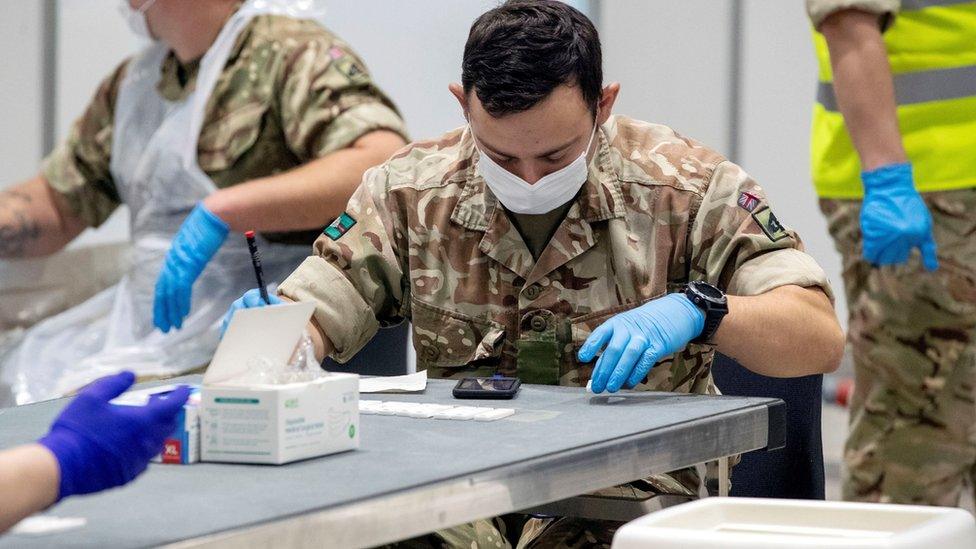
The military has previously helped organise mass testing in Liverpool
The military has previously helped organise mass testing in Liverpool and more recently in Kent to clear the backlog of lorries caused by France shutting its UK border.
Students will swab themselves in the vast majority of cases, under the supervision of school staff or a volunteer who has been trained for the role, and teachers are not expected to take a role in the testing process.
The idea in schools is that following one round of testing all pupils, school staff would be offered a test every week. Then anyone who is a close contact of someone testing positive would be offered tests every day for seven days.
This would cut the amount of school pupils miss due to self isolation, and help keep the virus out of schools.

SOCIAL DISTANCING: Can I give my friends a hug?
LOOK-UP TOOL: How many cases in your area?
LOCKDOWN LOOK-UP: The rules in your area


FILMS FOR EVERYONE: Check out what films are streaming now on BBC iPlayer
IDRIS ELBA MEETS PAUL McCARTNEY: Listen to the exclusive interview now...


Do you work in a school? Will you be affected by mass testing in schools? Email haveyoursay@bbc.co.uk, external.
Please include a contact number if you are willing to speak to a BBC journalist. You can also get in touch in the following ways:
WhatsApp: +44 7756 165803
Tweet: @BBC_HaveYourSay, external
Please read our terms & conditions and privacy policy
If you are reading this page and can't see the form you will need to visit the mobile version of the BBC website to submit your question or comment or you can email us at HaveYourSay@bbc.co.uk, external. Please include your name, age and location with any submission.
- Published20 December 2020
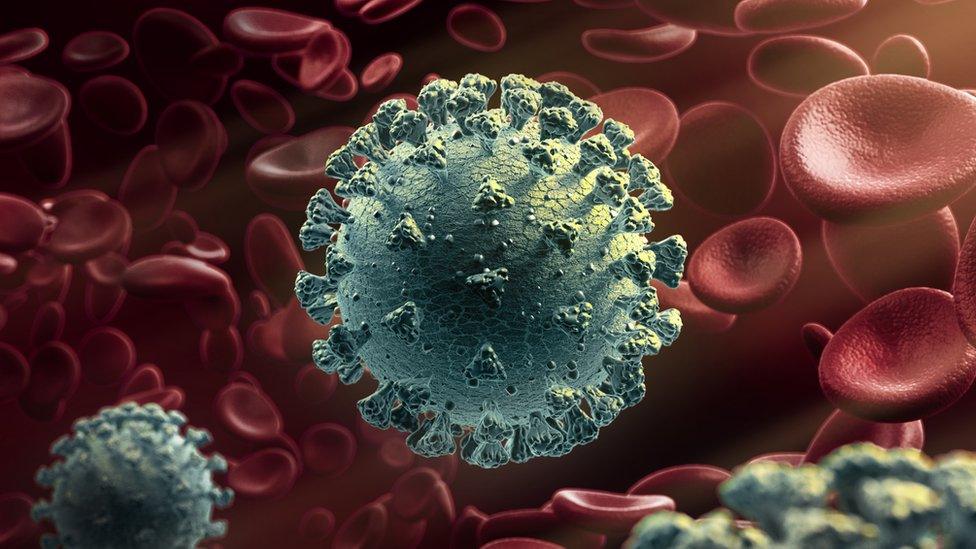
- Published28 December 2020
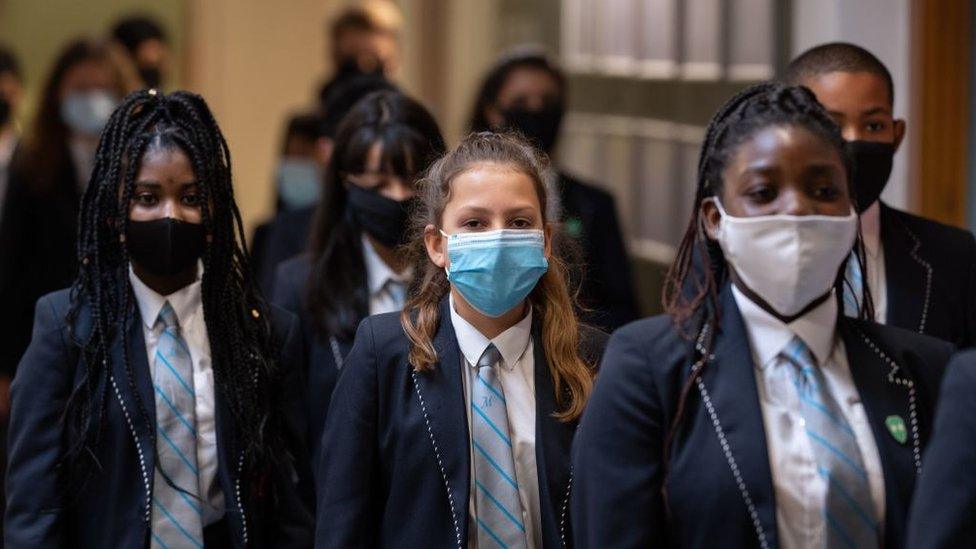
- Published28 December 2020
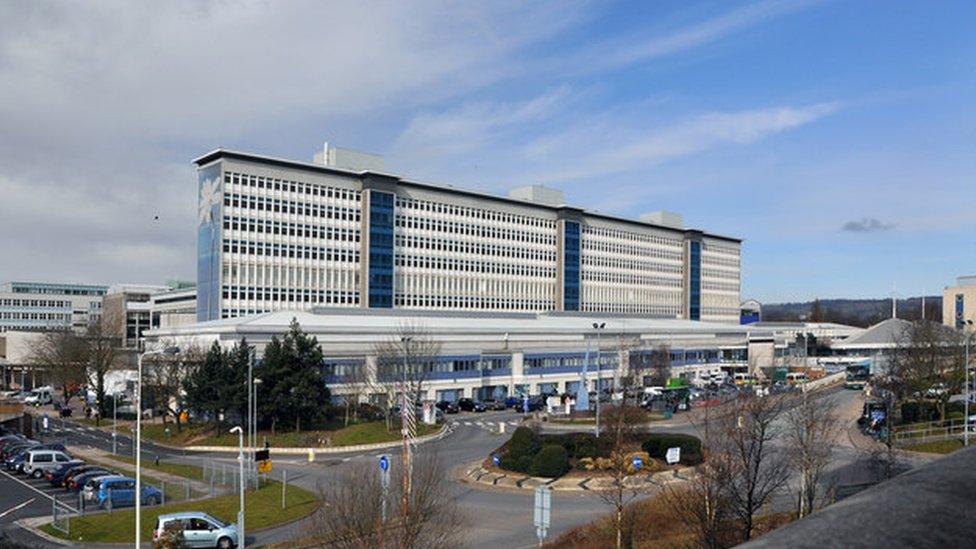
- Published27 December 2020
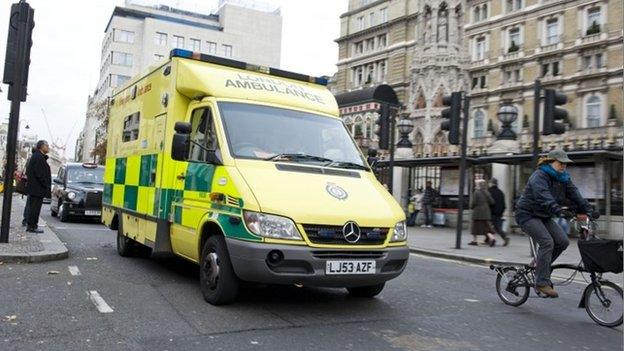
- Published27 December 2020
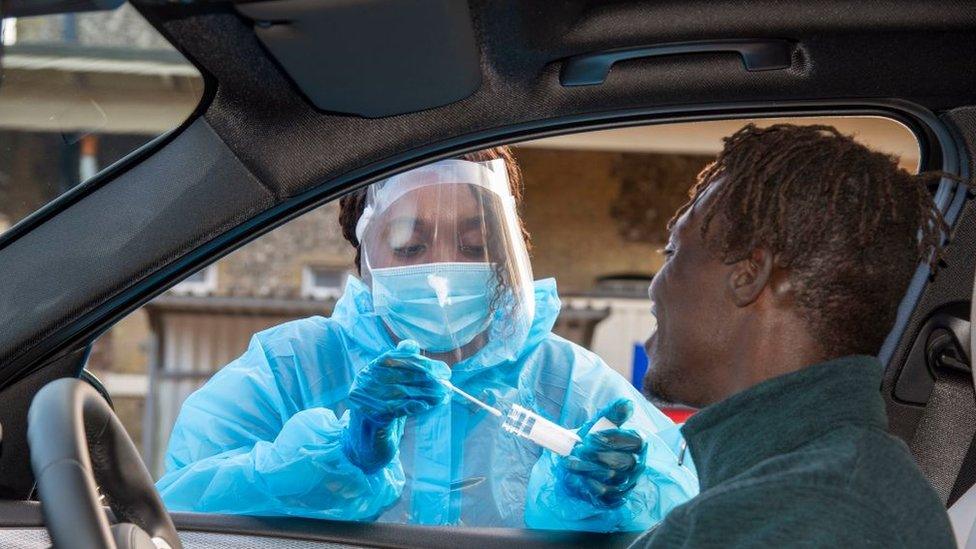
- Published27 December 2020
